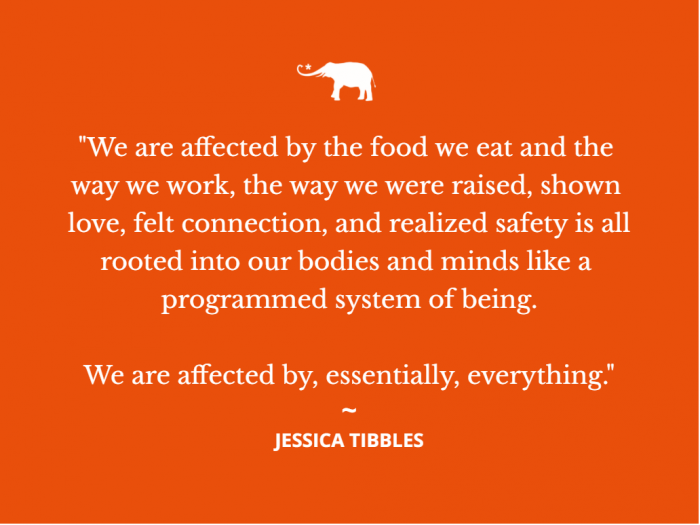Thanks to all our fans for making Cracked Up a trending film on Netflix! Keep sharing and talking about it! pic.twitter.com/OSUVYfnQhV
— Cracked Up Movie (@CrackedUpMovie) May 7, 2020
I recently watched “Cracked Up: The Darrel Hammond Story” on Netflix.
If you’re unfamiliar with the documentary, Darrel Hammond is an actor, stand-up comedian, and impressionist (a very good one!), most famous for his work on Saturday Night Live.
His documentary is less about his life in showbiz and more about the origin of his often dysfunctional and destructive life, which led him to showbiz: the extreme and horrifying childhood abuse he endured and the intense psychological trauma he continues to live with to this day.
The whole documentary is quite heartbreaking, eye-opening, raw, vulnerable, and disastrously beautiful. It helps you see all of these realizations, stories, and how the truth of trauma comes to life. (I recommend it!)
I’ve been studying trauma and the way it manifests in our brains, bodies, and everyday life for almost a decade.
I began this endeavor mostly out of spite. I was so tired of feeling misunderstood by every doctor I had ever gone to that I finally decided to take matters into my own hands. It led me down a painfully miraculous path that continues to unfold as I speak and somehow continue to breathe—sometimes begrudgingly, other times gleefully. Either way, I will always be walking down this path because one of the many lessons I have learned during this part of my journey is this: it never really ends.
When I watched this documentary about Darrel, my whole body had that familiar feeling in the deepest layer of my bones: resonance.
Whenever this happens, which is absurdly often, I am catapulted into the parts of my own story that are hidden within another person’s identity. Resonance, for me, is the purest form of empathy. Recognizing our own story within another person, another story, another wound is where, for me, inspiration is almost always born.
One of the most profound parts of this documentary, which sparked the inspiration to write this piece, was a sentence that Darrel’s doctor (the one who finally gave him real answers) said to him that essentially altered Darrel’s entire life.
He said, “I don’t want you to call what you have a mental illness. I would like you to call it a mental injury.”
Darrel, at this point in his life, had a colorful list of diagnoses. He had been medicated by professionals since he was in his late 20s and had been self-medicating, almost fatally, since his teens. He had been living decades on this planet believing he was diseased and that this disease was causing distress in his life and everybody he came in contact with.
I can only imagine the shock, relief, absolute devastation, and complete solace that surfaced from deep inside of his body when he heard a doctor finally tell him that what happens in his brain is not a disease but rather an injury he could have never caused.
So many people live their lives in the place that Darrel was prior to this doctor saying this sentence. So many people see their mental health as something to fix rather than a story to uncover so they would be able to perceive the truth within. So many people place blame on themselves for something that was never theirs to own. So many people suffer inside of a diagnosis.
I resonate with this so deeply because I have personally been in this position, and I know so many other people who also could specifically relate to this story. The ideas may be different and the details changed, but in essence, it is all very much the same.
Darrel was completely unaware of the extent of abuse he had endured as a child up until his 40s, and it took a lot of therapy and compassion from his doctor—and himself—to really uncover it.
We don’t all have that luxury, and the reality of our stories looks different for every unique experience and individual.
However, one thing that I find is a constant within this entire idea of mental health and mental illness is that mental “illness” is not really an illness at all. Mental “illness” is really just a mental injury, and our process is about learning to see that compassionately and work to heal it the same way we would a physical wound.
Some people would furiously disagree with me, but it is so inherently clear to me that our brains, bodies, and minds are consistently being imprinted upon by our experiences and the experiences that came before us. We are affected not only by our own life experiences but by our ancestors’ life experiences and how the generations before us lived their lives as a whole—how the current generation lives its life as a whole.
We are affected by the food we eat and the way we work, the way we were raised, shown love, felt connection, and realized safety is all rooted into our bodies and minds like a programmed system of being. We are affected by touch, words, smell, taste.
We are affected by, essentially, everything.
Humans are incredibly resilient and yet extremely sensitive beings. To say that mental illness is merely a chemical imbalance in one’s brain feels almost disrespectful. For sure, that is most definitely a part of it—but there is so much more to how that imbalance got there.
There is so much more behind the brain’s reactions, and more so, the stories that are at the root of how it got there.









Read 1 comment and reply